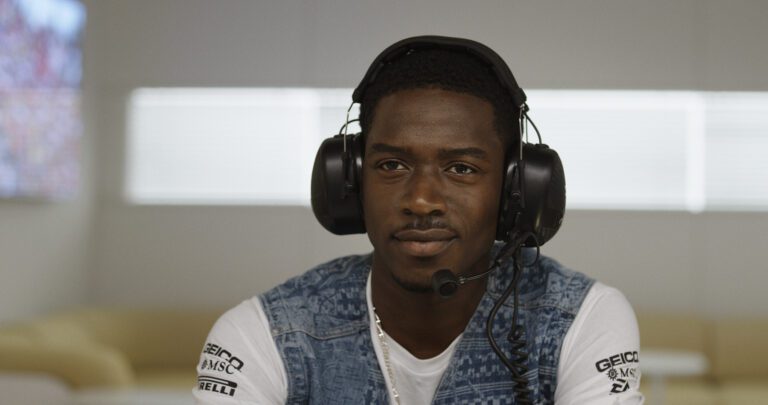Emily Brockmann is one of those rare birds who knew exactly what she wanted to do at a very early age. Few people know what career they want to pursue as a teenager, and even fewer decide so firmly on casting. However, the British casting director behind the Oscar-winning Belfast and the Netflix miniseries All the Light We Cannot See did just that.
Alongside her mentor and boss, Lucy Bevan, she has worked on dozens of movies, including Roald Dahl’s Matilda the Musical, for which she won an Artios Award, the highest honor given by the Casting Society of America.
Brockmann’s work on All the Light We Cannot See has earned her a recent Artios nomination in the Limited Series category. She spoke with us from London.
Insights: Lessons from Emily Brockmann
- Come to auditions well-prepared, and leave any external stressors or travel issues behind to be fully present and focused during your audition.
- Bring your unique ideas to the table, but also show that you are willing to make adjustments and take direction from the casting team.
- Approach auditions with the knowledge that casting directors are rooting for you to succeed because your good performance reflects positively on their casting choices.
How did you get into casting in the first place?
My story is a little bit unusual. I met my current boss, Lucy Bevan, at a careers evening when I was 15 years old. She owed the librarian at my school a favor. To this day, I’m still not sure what the favor was.
How can you not know what the favor was?
It’s weird, isn’t it? I’ve never actually asked! Maybe it’s one of those things where it’s better left unknown? I’m not sure.
Anyway, I remember, it felt like a really important moment in my life for some reason. I sat down with Lucy and found out what a casting director was. Up until that point, I’d always been interested in film, but I didn’t know that casting was a career choice and just thought the job sounded interesting.
I finished school and went to university, but interspersed through those next six, seven years, between the ages of 16 and 22, I did internships. Bits and pieces here and there, but I always came back to casting, the thing I loved the most. I was lucky. I found it young, which I think is quite unusual.
Based on my many conversations with casting directors, it is. What is not, though, is this lack of knowledge of what casting is. When you find out, it’s like a lightning bolt.
That is one of the reasons that I’m always up for doing interviews about casting. I’m keen for people to find it like I did.
So you enjoy proselytizing on behalf of casting?
Yeah, something like that. (Laughs) I’m an advocate. Perhaps not quite proselytizing, but I’m an advocate for spreading the word and letting people know that it is a viable career option because I didn’t up until, as you say, that “lightning bolt” moment.
I think what casting directors do can be very difficult to quantify. It’s not like, for example, production design or costume design. You are putting actors in roles or helping to collaborate to put actors in roles who then go off and give these hopefully fantastic performances. There’s something about it that is, I guess, maybe less objective.
The irony is that you are seeing a casting director’s work on screen more than anything else. You may not notice the production or art design, but you notice the performances and a miscast roll does more damage to a film than a bad production design.
I would agree with that, but that’s the beauty of it. If something’s well-cast, it’s so seamless that you almost don’t even notice. Also, the thing that I find fascinating about it is it’s the one part of the filmmaking process where if you ask someone on the street, they will have an opinion on actors. Everyone is a casting director on some level. Or at least think they might be.
One of the things that gets a casting director a lot of attention is a discovery like Aria Mia Loberti, who stars in All the Light We Cannot See, who had never acted before. How did you find her?
We worked with a fantastic casting director in New York, Susanne Scheel, and another fantastic casting director in Australia, Amanda Mitchell. We became aware quite quickly that it was a one-in-a-billion sort of search to find someone blind for that role, but it also meant that we knew exactly what we were looking for.
Aria’s a PhD student in rhetoric at Penn State. One of her childhood teachers saw that we had this open call casting going on and recommended that she apply. I’m always slightly loathe to use the word “discovery” because I worry that it gives casting directors too much credit. I think in the case of Aria, perhaps that word does apply because she had never acted before and had no plans to do so. However, when you’re talking about actors, one hopes they will always be discovered by someone.
I find that casting directors are reticent to refer to anyone as being discovered by them, and maybe that has something to do with being under-appreciated. Other craftspeople tend to take credit for the work they do, whereas casting directors deflect it and shy from the spotlight.
Perhaps. I don’t know. I think maybe when you’re doing the job, you realize how much of a collaboration it is. Hopefully, if it’s all going well, you are supporting the director’s vision and the world that they want to create. You’re working with actors who have their ideas and they bring their interpretation to it. It sounds lame, but it feels like a gray area. You do have influence and you really want to make a mark on a film and do the best work that you can. That’s all to say that I’m very self-deprecating. (Laughs)
What piece of advice or wisdom would you give to an actor coming to audition for you?
A few things. The first is that I always want actors to know that we are on your side. We want you to do well, in the most basic terms. If an actor does well, it makes us look good. Be as well-prepared as you can be, leaving any kind of travel troubles at the door and be as present as you can in the audition. At the same time, be able to make changes. Be as adaptable as you can be. Bring your ideas, absolutely, but also be open and amenable to making adjustments to whatever it is you’ve been given to prepare because that is fundamentally what we’re looking for.
I’ve never had to do it myself and I can’t imagine how hard it must be to constantly audition, so I think I’m always so obsessed with the idea of wanting to make it as good an experience as it can be for the actors coming in to meet us.
Editor’s note: This article was originally published in February and has been updated to reflect Brockmann’s Artios nomination.
Ready to find your next role with Casting Networks? Sign up for a free trial today!













